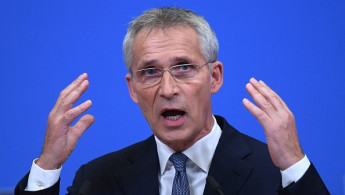NATO chief urges allies to overcome disagreement on Afghanistan departure
NATO chief Jens Stoltenberg on Wednesday urged members not to let disagreements over the departure from Afghanistan divide the alliance, as defence ministers look to take stock of what went wrong.
The Taliban swept to power in the country after NATO troops withdrew on the back of a decision by US President Joe Biden to end Washington's longest war.
The collapse of the government after 20 years of Western military involvement sparked criticism from some allies of the US over the manner of its decision to pull out.
NATO was subsequently also rocked by a separate dispute between France and the US over Washington's new AUKUS defence pact with Australia and Britain that saw Paris lose a mammoth submarine contract.
"The disagreements or differences of opinions about AUKUS within the alliance and Afghanistan do not change the fundamental need and message that Europe or North America has to stand together," Stoltenberg told journalists.
"We face a more competitive world we face more state-to-state rivalry, and then it's even more important that we stand together as the 30 allies."
Defence ministers are meet in Brussels Thursday for their first face-to-face talks since the chaotic withdrawal and mammoth evacuation effort.
The alliance is conducting a review of "lessons learnt" from its two-decade involvement in Afghanistan and the disastrous way it ended.
"We'll talk about NATO's role post-Afghanistan and some of the lessons learnt from Afghanistan," US Defence Secretary Lloyd Austin said ahead of the meeting.
Stoltenberg insisted that it remained too early to draw final conclusions from the collapse in Afghanistan.
"But we should not draw the wrong conclusion of Afghanistan and think that NATO allies and NATO should never again engage in military operations to fight extremism, or terrorism," he said.
Stoltenberg insisted that there had been ample consultation between the US and other allies over the decision to withdraw.
"We were clear eyed about the risks, the risk of Taliban returning," he said.
"But we also knew that the alternative to stay entailed risks of more violence, more fighting and also most likely the need for us to increase the number of NATO troops."





 Follow the Middle East's top stories in English at The New Arab on Google News
Follow the Middle East's top stories in English at The New Arab on Google News


